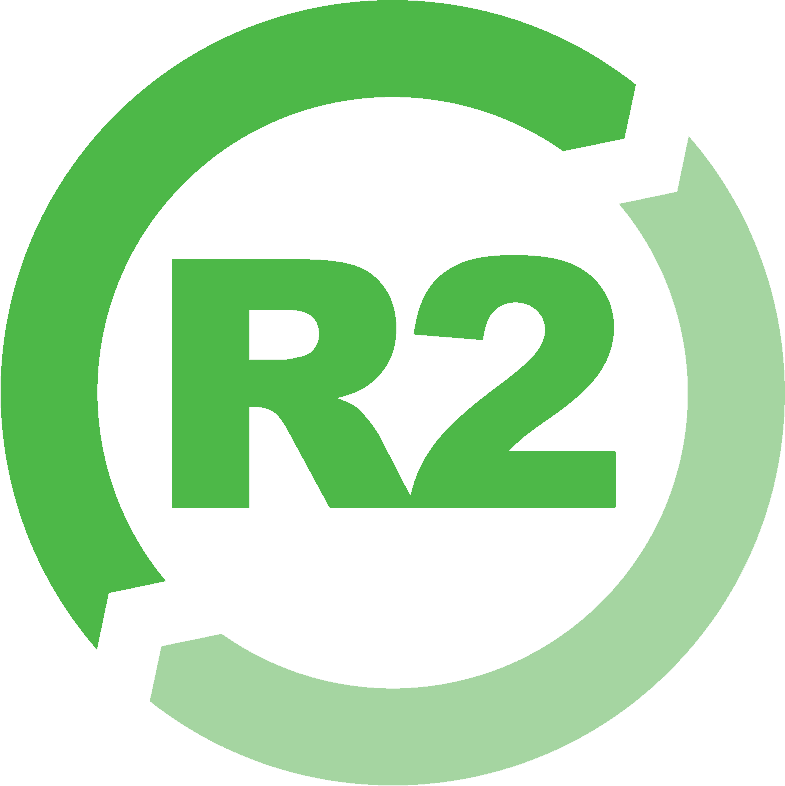Need Help?
Got Questions? We Answer
What types of electronics do you accept?
We accept a wide range of electronic items including computers, laptops, monitors, printers, phones, networking equipment, servers, and more. If you’re unsure about a specific item, feel free to contact us.
Is my data really safe during the recycling process?
Absolutely. We provide certified data wiping and hard drive shredding services to ensure all sensitive information is completely destroyed. You’ll also receive a Certificate of Destruction for your records.
Do you offer pickup services?
Yes, we offer secure on-site pickups using GPS-tracked vehicles and tamper-proof packaging. Our logistics team ensures safe transportation from your location to our facility.
What certifications do you hold?
We are R2 Certified, meaning we meet globally recognized standards for electronics recycling, data security, and environmental responsibility.
What is the process for data center decommissioning?
We handle everything—from hardware removal and asset tagging to data destruction and recycling. You’ll receive detailed documentation throughout the process.
Do you recycle batteries or hazardous materials?
We do recycle batteries that are part of electronic equipment. For standalone batteries or hazardous waste, please contact us for specific handling and acceptance.
Do you serve individuals or only businesses?
We work with both businesses and individuals. Whether you’re a homeowner with a few devices or an organization decommissioning a full office, we’re here to help.
Do you provide documentation for compliance?
Yes, we provide full documentation including Certificates of Destruction, recycling reports, and asset tracking logs for audit and compliance purposes.
How can I get started?
Simple! Call us at +1 (925) 436-9365, email us at recycle@newgreen-recycling.com, or schedule a pickup directly from our website.
What does it mean to be R2 certified?
Key aspects of R2 certification include: [3]
* Environmental Management System: Implementing a system to manage air emissions, water discharges, and waste. [5]
* Worker Health and Safety: Ensuring a safe working environment with proper training and protective equipment. [5]
* Data Security: Implementing measures to protect data stored on electronic devices, including secure data destruction. [5]
* Prioritizing Reuse and Recycling: R2 certified recyclers must prioritize reuse and recycling before considering disposal options. [5, 6]
* Downstream Management: Ensuring that any vendors involved in the recycling chain also adhere to responsible practices. [5, 6]
* Independent Audits: R2 certification requires regular audits by an independent third-party to verify compliance. [5]
R2 certification is a voluntary program, but it is widely recognized and can help organizations demonstrate their commitment to responsible electronics recycling. It is also often a requirement for organizations looking to responsibly manage their electronic waste and ensure data security. [1, 2, 3, 4, 7, 8, 9]
[1] https://nsysgroup.com/blog/what-is-r2-certification-and-why-is-it-important/
[2] https://upscsociology.in/q-r2-code-of-practices-constitutes-a-tool-available-for-promoting-the-adoption-of/
[3] https://www.quality-assurance.com/blog/what-is-the-approximate-cost-for-an-r2-certification-and-what-are-the-key-aspects.html
[4] https://india.sustainableelectronics.org/r2/
[5] https://gcitad.com/r2-certification
[6] https://www.trustcobalt.com/articles/what-is-r2-certification-and-why-is-it-important/
[7] https://www.youtube.com/watch?v=gy0D8TJKZbs
[8] https://securis.com/news/what-is-r2-certification-in-e-waste-recycling/
[9] https://mayeralloys.com/what-is-an-r2-certification/

